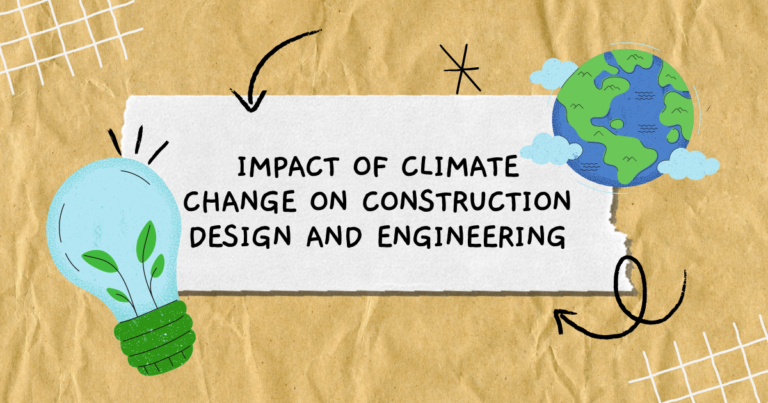
Contents
Climate change poses significant challenges to various sectors, including construction and engineering. In Chennai, a coastal city in India experiencing rapid urbanization, the effects of climate change are becoming increasingly evident. As such, building contractors in Chennai and building construction companies in Chennai are compelled to adapt their practices to mitigate these impacts. This article explores the evolving landscape of construction design and engineering in response to climate change, highlighting the role of the best building contractors in Chennai in fostering resilience and sustainability.
Understanding Climate Change in Chennai
Chennai, situated on the Bay of Bengal, is susceptible to various climate-related hazards, including rising temperatures, extreme rainfall events, cyclones, and sea-level rise. These phenomena not only pose immediate threats to infrastructure but also exacerbate existing vulnerabilities, such as water scarcity and urban heat island effects. Recognizing these challenges is the first step toward implementing effective strategies for climate-resilient construction.
Designing for Resilience
Climate change necessitates a paradigm shift in construction design and engineering practices. Building contractors in Chennai must prioritize resilience by integrating climate adaptation measures into their projects. This includes designing structures that can withstand extreme weather events, such as cyclone-resistant buildings equipped with robust foundations, reinforced structures, and resilient roofing materials. Additionally, incorporating passive cooling techniques, such as natural ventilation and shading, helps mitigate the urban heat island effect, reducing the reliance on energy-intensive cooling systems.
Sustainable Materials and Practices
Adopting sustainable materials and construction practices is essential for mitigating the environmental impact of building activities and reducing carbon emissions. Building construction companies in Chennai can leverage locally sourced materials, such as reclaimed wood, bamboo, and recycled aggregates, to minimize embodied carbon and support the local economy. Furthermore, implementing energy-efficient technologies, such as solar panels and rainwater harvesting systems, promotes resource conservation and reduces reliance on fossil fuels.
Green Infrastructure and Urban Planning
Climate-resilient construction extends beyond individual buildings to encompass broader urban planning and infrastructure development. Building contractors in Chennai play a crucial role in implementing green infrastructure solutions, such as permeable pavements, green roofs, and urban forests, to enhance flood resilience and improve biodiversity. Additionally, integrating climate considerations into urban planning processes facilitates the creation of sustainable, walkable communities that prioritize public transportation and green spaces.
Collaboration and Knowledge Sharing
Addressing the complex challenges of climate change requires collaboration among various stakeholders, including government agencies, academia, industry professionals, and local communities. Building contractors in Chennai can contribute to this collaborative effort by sharing knowledge, best practices, and lessons learned from climate-resilient projects. Engaging in capacity-building initiatives and participating in industry forums and workshops foster innovation and collective action toward building a more resilient and sustainable future.
Policy Support and Advocacy
Policy support is essential for driving the transition toward climate-resilient construction practices. Building contractors in Chennai can advocate for policies that incentivize sustainable building practices, such as tax incentives for green buildings, streamlined permitting processes for renewable energy installations, and mandatory climate risk assessments for infrastructure projects. Additionally, advocating for stronger building codes and standards that incorporate climate resilience considerations ensures that new construction meets high-quality, long-term performance criteria.
Conclusion
Climate change presents unprecedented challenges to the construction and engineering sectors, requiring innovative solutions and proactive adaptation measures. Building contractors in Chennai and building construction companies in Chennai have a critical role to play in fostering resilience and sustainability in the built environment. By prioritizing climate-resilient design, adopting sustainable materials and practices, integrating green infrastructure into urban planning, fostering collaboration and knowledge sharing, and advocating for supportive policies, they can contribute to building a more resilient and sustainable future for Chennai and beyond.